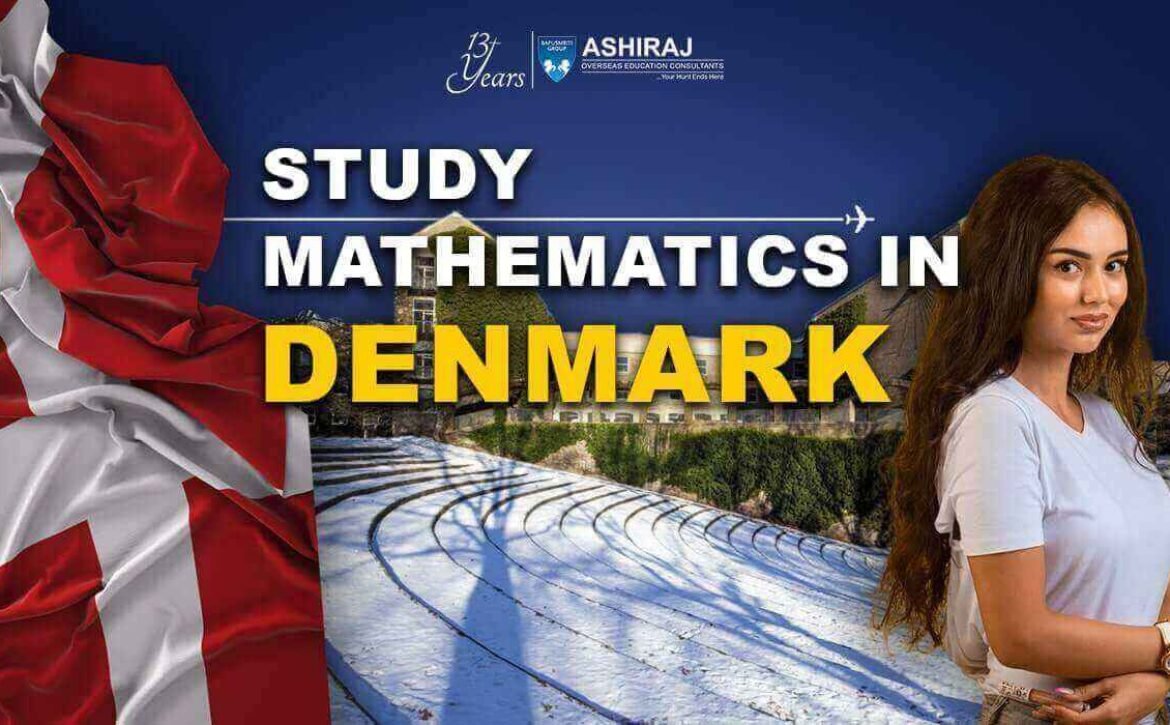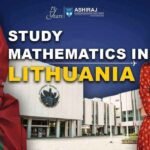
Mathematics in Denmark
Mathematics in Denmark holds a significant place in the nation’s academic and cultural landscape. Renowned for its contributions to various fields within mathematics, Denmark boasts a rich history of mathematical achievement dating back centuries. From the pioneering work of Niels Henrik Abel to modern-day advancements in cryptography and mathematical physics, Danish mathematicians have continually pushed the boundaries of mathematical knowledge. With a strong emphasis on education and research, Denmark fosters an environment conducive to mathematical exploration and innovation.
The Danish education system places a high value on mathematics, integrating it into curricula from primary school through higher education. This commitment to mathematical literacy has cultivated a population with a deep appreciation for the subject and a proficiency that extends beyond academia into various industries. As Denmark continues to evolve technologically and economically, mathematics remains a cornerstone of its progress, driving advancements in science, engineering, and beyond.
Why to Study Mathematics in Denmark?
- Academic Excellence: Denmark is renowned for its high-quality education system, particularly in mathematics. With esteemed institutions like the University of Copenhagen and Aarhus University, students have access to world-class faculty and research facilities.
- Innovative Research Opportunities: Denmark offers abundant research opportunities in various mathematical disciplines, from pure mathematics to applied fields like cryptography and data science. Students can engage in cutting-edge research projects and contribute to advancements in the field.
- Interdisciplinary Approach: Mathematics in Denmark is not confined to traditional boundaries but is integrated into interdisciplinary studies. This approach fosters creativity and allows students to apply mathematical principles to real-world problems in fields like engineering, economics, and computer science.
- Strong Support for Students: Danish universities provide extensive support services for international students, including language courses, accommodation assistance, and cultural integration programs. This ensures a smooth transition for students pursuing mathematics education in Denmark.
- Career Opportunities: Graduates with a mathematics degree from Denmark are highly sought after by employers globally. The rigorous academic training and practical experience gained prepare students for diverse career paths in academia, industry, finance, and technology.
In conclusion, studying mathematics in Denmark offers a unique blend of academic excellence, research opportunities, interdisciplinary learning, student support, and promising career prospects, making it an ideal choice for aspiring mathematicians and researchers.
Top Universities to Study Mathematics in Denmark
University | QS World University Ranking 2023 | Type of University | Average Annual Fees | Programs Offered |
University of Copenhagen | 45 | Public | $0 (for EU/EEA) | Mathematics, Applied Mathematics, Statistics, Mathematical Physics |
Aarhus University | 88 | Public | $8,000 – $12,000 | Mathematics, Computational Mathematics, Financial Mathematics |
Technical University of Denmark | 115 | Public | $0 (for EU/EEA) | Mathematics, Applied Mathematics, Engineering Mathematics |
Aalborg University | 251-260 | Public | $8,000 – $12,000 | Mathematics, Industrial Mathematics, Data Science |
Roskilde University | 501-510 | Public | $0 (for EU/EEA) | Mathematics, Mathematics and Economics, Mathematics and Computer Science |
Denmark stands out globally for its exceptional universities offering top-notch mathematics programs. With a focus on academic excellence and innovative research, these institutions provide a conducive environment for aspiring mathematicians. The University of Copenhagen leads the pack, renowned for its pioneering research in various mathematical disciplines. Aarhus University follows closely, offering diverse programs in mathematics and related fields. The Technical University of Denmark integrates mathematics into engineering, fostering interdisciplinary learning. Aalborg University emphasizes practical applications of mathematics, preparing students for industry roles. Finally, Roskilde University provides unique interdisciplinary programs blending mathematics with economics and computer science, catering to diverse academic interests. Mathematics in Denmark flourishes within these esteemed institutions, attracting students globally seeking quality education and promising career opportunities.
Course Curriculum for Mathematics in Denmark
- Foundational Mathematics: The curriculum typically begins with foundational courses covering topics such as calculus, algebra, and geometry, providing students with a solid mathematical grounding.
- Advanced Mathematics: As students progress, they delve into advanced topics like differential equations, linear algebra, and mathematical analysis, honing their problem-solving skills and theoretical understanding.
- Applied Mathematics: Many programs offer courses in applied mathematics, focusing on practical applications in fields such as physics, engineering, and economics, bridging theory with real-world challenges.
- Specialized Tracks: Students often have the opportunity to choose specialized tracks or electives based on their interests, such as cryptography, financial mathematics, or computational mathematics.
- Research Opportunities: Universities in Denmark emphasize research, offering opportunities for students to engage in projects alongside faculty members, contributing to ongoing advancements in the field.
The course curriculum of Mathematics in Denmark is designed to provide students with a comprehensive understanding of mathematical principles, preparing them for diverse career paths in academia, industry, and research. With a focus on both theoretical rigor and practical application, these programs equip graduates with the skills and knowledge needed to excel in today’s dynamic world. Mathematics in Denmark thrives within this robust educational framework, attracting students from around the globe seeking excellence in mathematical education.
Eligibility Criteria & Admission Requirements for MS in Mathematics in Denmark
- Language Proficiency: Applicants are required to demonstrate proficiency in English by submitting scores from standardized tests such as IELTS or TOEFL. Minimum scores vary by institution but generally range from 6.5 to 7.0 for IELTS and 80 to 100 for TOEFL.
- Standardized Tests: Most universities in Denmark also require scores from standardized tests like GRE or GMAT. While specific score requirements differ, competitive applicants typically score above 160 in the quantitative section of GRE and above 600 in GMAT.
- Academic Qualifications: Applicants must hold a bachelor’s degree in mathematics or a related field from a recognized institution. Transcripts and academic certificates demonstrating a strong academic background are typically required.
- Work Experience: Some programs may prefer applicants with relevant work experience in mathematics or related fields. While not always mandatory, work experience can strengthen an application.
- Passport & Student Visa: International applicants must possess a valid passport and obtain a student visa to study in Denmark. The visa application process typically requires proof of acceptance from a Danish university, financial stability, and health insurance coverage.
IELTS/TOEFL and GRE/GMAT scores are crucial components of the application process for Mathematics in Denmark, along with academic qualifications, work experience, and documentation for visa requirements. Meeting these eligibility criteria ensures that applicants are well-prepared for the rigorous academic environment and cultural integration in Denmark.
Documents Required for Studying Mathematics in Denmark
- Passport: A valid passport is essential for international applicants to verify their identity and nationality.
- Letters of Recommendation (LOR): Typically, two letters of recommendation from professors or professionals in the field of mathematics are required to assess the applicant’s academic abilities and potential.
- Statement of Purpose (SOP): An SOP outlining the applicant’s academic background, research interests, and reasons for pursuing mathematics in Denmark is necessary to evaluate their motivation and suitability for the program.
- Curriculum Vitae (CV): A comprehensive CV detailing the applicant’s educational qualifications, research experience, publications, and relevant skills is crucial for assessing their academic and professional achievements.
- Official High School Transcripts: Transcripts from the applicant’s high school or secondary education institution are required to verify their academic background.
- Educational Certificates: Certificates for completed degrees or qualifications in mathematics or related fields are necessary to demonstrate the applicant’s academic achievements.
- Work Experience Certificate: If applicable, a work experience certificate may be required to validate any relevant professional experience in mathematics or related fields.
- Proof of Financial Resources: Evidence of sufficient financial resources to cover tuition fees, living expenses, and other costs associated with studying in Denmark is essential for obtaining a student visa and ensuring financial stability during the course of study.
These documents are crucial for the application process for Mathematics in Denmark, ensuring that applicants meet the necessary academic and administrative requirements for admission to their desired program.
Admission Process for Mathematics in Denmark
- Research Universities: Explore universities in Denmark offering mathematics programs, considering factors such as faculty expertise, research opportunities, and program curriculum.
- Check Eligibility: Review the admission requirements, including academic qualifications, language proficiency (IELTS/TOEFL), and standardized test scores (GRE/GMAT), ensuring you meet the criteria.
- Prepare Documents: Gather required documents such as passport, academic transcripts, letters of recommendation, statement of purpose, curriculum vitae, and proof of financial resources.
- Submit Application: Complete the online application form provided by the university, ensuring accuracy and completeness of information. Pay attention to application deadlines.
- Language Proficiency Test: Schedule and take the necessary language proficiency tests (IELTS/TOEFL), ensuring your scores meet the university’s minimum requirements.
- Standardized Tests: Register for and take standardized tests (GRE/GMAT), aiming for scores that meet or exceed the university’s expectations.
- Submit Supporting Documents: Upload or send supporting documents, including academic transcripts, letters of recommendation, statement of purpose, curriculum vitae, and proof of financial resources, as required by the university.
- Await Decision: Wait for the university to review your application and make an admission decision. This process may take several weeks to months.
- Acceptance and Visa: Upon receiving an acceptance letter, proceed to obtain a student visa by submitting required documents to the Danish embassy or consulate in your country.
- Enrollment: Once the visa is approved, enroll in the mathematics program at the chosen university, preparing for an enriching academic experience in Mathematics in Denmark.
“Education is the most powerful weapon which you can use to change the world.”
Nelson Mandela
Cost of Mathematics Course in Denmark
- Tuition Fees: For EU/EEA students, tuition is often free at public universities, including mathematics programs. However, non-EU/EEA students may incur tuition fees ranging from $8,000 to $12,000 per year.
- Living Expenses: Living costs in Denmark can vary depending on the city and lifestyle. On average, students should budget around $800 to $1,200 per month for accommodation, food, transportation, and other expenses.
- Health Insurance: All students in Denmark must have health insurance. EU/EEA citizens can use their European Health Insurance Card, while non-EU/EEA students may need to purchase private health insurance, costing approximately $600 to $1,000 per year.
- Books and Supplies: The cost of books and supplies for mathematics courses can range from $300 to $500 per year, depending on the program’s requirements and the availability of used books.
- Other Expenses: Additional expenses may include visa fees, residence permit fees, travel expenses, and leisure activities. It’s advisable to budget extra for unforeseen costs.
Studying Mathematics in Denmark offers a balance of quality education and manageable expenses for EU/EEA students, while non-EU/EEA students should carefully consider the costs involved and plan accordingly to ensure a smooth academic experience.
Scholarships for Mathematics Courses in Denmark
Scholarship Name | Amount | Application Deadline |
Danish Government Scholarships | Varies | March-April (annual) |
Erasmus+ Scholarship | Varies | Varies |
DTU Scholarships | Full tuition + stipend | March 1st (annual) |
Aarhus University Scholarships | Partial tuition + stipend | March 15th (annual) |
University of Copenhagen Scholarships | Partial tuition + stipend | March 1st (annual) |
Scholarships play a crucial role in facilitating access to mathematics education in Denmark, providing financial assistance to deserving students. The Danish Government offers a range of scholarships, with application deadlines typically falling between March and April each year. The Erasmus+ Scholarship, available for European students, offers funding opportunities for studying abroad, including in Denmark. Additionally, universities like DTU, Aarhus University, and the University of Copenhagen offer their own scholarships, covering full or partial tuition fees along with stipends to support living expenses. These scholarships aim to attract talented individuals to pursue Mathematics in Denmark, fostering a diverse and dynamic academic environment while easing the financial burden for students.
Career Opportunities After Mathematics in Denmark
Job Profile | Average Salary (DKK/month) |
Mathematician | 45,000 – 65,000 |
Data Scientist | 50,000 – 70,000 |
Actuary | 55,000 – 80,000 |
Financial Analyst | 45,000 – 70,000 |
Software Developer | 45,000 – 75,000 |
Mathematics in Denmark opens up diverse career opportunities across various industries, with competitive salaries reflecting the high demand for mathematical skills. Mathematicians, involved in research and problem-solving, can expect salaries ranging from 45,000 to 65,000 DKK per month. Data scientists, utilizing mathematical and statistical techniques to analyze data, command salaries between 50,000 and 70,000 DKK monthly. Actuaries, responsible for assessing financial risks, earn salaries ranging from 55,000 to 80,000 DKK per month. Financial analysts, leveraging mathematical models to make investment decisions, typically earn between 45,000 and 70,000 DKK monthly. Software developers with mathematical expertise, contributing to the development of algorithms and applications, earn salaries ranging from 45,000 to 75,000 DKK per month. With a strong foundation in mathematics, individuals in Denmark can pursue rewarding careers in diverse fields while contributing to innovation and economic growth.
Frequently Asked Questions About Mathematics in Denmark
Some of the top universities in Denmark offering mathematics programs include the University of Copenhagen, Aarhus University, and the Technical University of Denmark.
Yes, there are various scholarships available for international students pursuing mathematics in Denmark, including the Danish Government Scholarships and university-specific scholarships.
Most universities in Denmark require international students to demonstrate proficiency in English through tests like IELTS or TOEFL.
Graduates with a mathematics degree in Denmark can explore diverse career paths such as mathematician, data scientist, actuary, financial analyst, and software developer.
Tuition fees for international students studying mathematics in Denmark can range from $8,000 to $12,000 per year at public universities.
While work experience is not always mandatory, it can strengthen an applicant’s profile for admission to mathematics programs in Denmark.
The application process typically involves submitting an online application, academic transcripts, standardized test scores, letters of recommendation, and a statement of purpose.
Yes, many universities in Denmark offer research opportunities for students pursuing mathematics degrees, allowing them to work on cutting-edge projects with faculty members.
The duration of mathematics degrees in Denmark varies depending on the level of study. A bachelor’s degree typically takes 3 years, while master’s programs may take 2 years to complete.
International students in Denmark can access a range of support services, including language courses, accommodation assistance, cultural integration programs, and career counseling.




